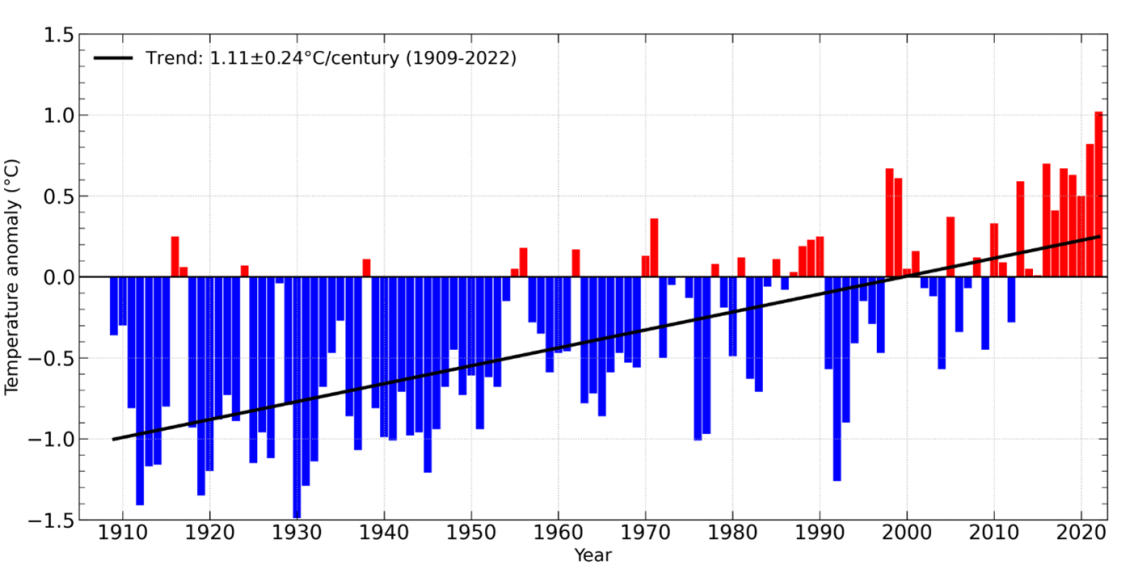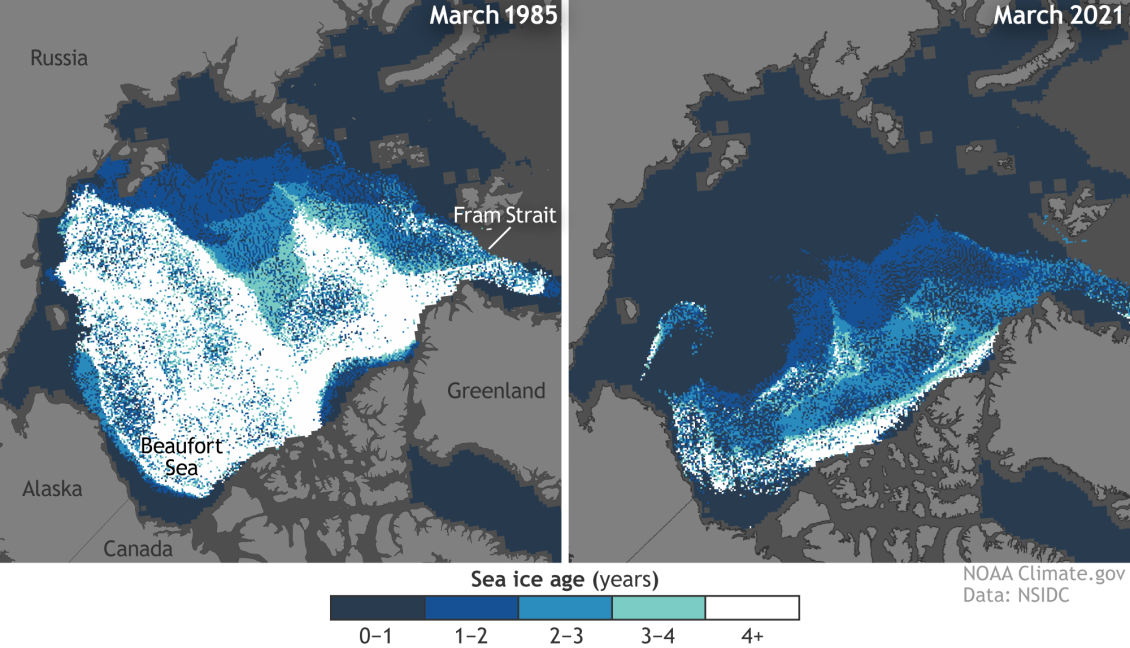Most commonly, climate change is referring to a shift from the stable climate that our world and societies are adapted to, to an unstable one that we are not. We are experiencing a transformation in known weather and climate patterns everywhere that is ongoing, accelerating, and creating new forms of weather-related realities for everyone, and affecting all aspects of life as we know it.
Why is this happening now?
Over the last 150 years global population has skyrocketed from one to eight billion people. During the same time, we've developed modern lifestyles that have significantly changed natural balances, land uses, and water cycles worldwide. This transformation has been predominantly powered by fossil fuel energy sources. Unfortunately, fossil fuel energy sources create by-products of greenhouse gases, that increase the heat and energy of our climate system.
Fossil fuel energy sources such as petrol, oil, gas, coal are called 'fossil' because they come from mineral sources formed from previous life on earth that absorbed and stored the sun’s energy over millions of years underground. By utilising these fossil energy resources we release new (actually very, very old, prehistoric) sources of carbon dioxide into the atmosphere that quite simply are not part of the climate system that life on Earth is adapted to. Carbon dioxide has strong heat absorbing capacity and thereby is a significant greenhouse gas, despite only representing four hundredths of a percentage of the atmosphere. Considering we are currently pumping well over 35,000,000,000 (35 billion) tonnes of carbon dioxide every year into the atmosphere, we are severely unbalancing the climate system.
Nitrous oxide and methane are the two other main greenhouse gases that our modern lifestyle practices are feeding to climate change. These are mostly generated through industrial processes, fossil gas extraction, agricultural and livestock practices, and waste disposal. Whilst methane does not survive long in the atmosphere because it breaks down to water and carbon dioxide after a decade or so, it does have a very high heat holding ability in that time which has influence on temperatures. Nitrous oxide may last over a hundred years, and a significant amount of carbon dioxide emitted today will persist beyond a 1000 years. It is the total, or cumulative buildup of all greenhouse gases that matter’s most to long term climate changes.
So what's happening?
Whilst the greenhouse effect is natural and critical to life on Earth by keeping it warmer than it otherwise would be, it is the large and fast addition of fossilized sources that has thrown out balance and become the most significant driver of current climate change. Temperatures are now consistently rising as illustrated by the NIWA record for Aotearoa New Zealand below.

The climate system is a dynamic interplay between many factors including the sun’s incoming energy, all life on earth, the atmosphere, the oceans, ice, climate cycles for example El Nino/La Nina, feedback effects, and more. The increased greenhouse effect has generated an energy imbalance. As a result, new temperature records and weather event extremes are occurring, increasing wildfires, and sea levels are rising at an increasing rate.
Sea levels are rising due to the thermal expansion of water as it heats in warming oceans and most importantly from ice melt adding more water. Worldwide we are witnessing the loss of previously permanent ice from land and reductions to seasonal sea ice extent especially in the polar regions, as illustrated by the below Arctic sea ice record from satellite observations. The younger and thinner the ice, the less likely it is to persist through the summer, the less it can reflect the sun’s energy, and the more of the sun’s energy is absorbed. This is an example of feedback effects mentioned above adding further to climate change.

What’s next?
Global human-caused climate change is recognised by all countries, and its effects are already being experienced all over the world. Many are responding, albeit slowly. Our societies have begun transitioning from fossil fuels to renewable energy. This is essential to stabilizing global temperatures and preventing further harm. How quickly this change, and others such as how we use land, happen and thereby the corresponding emissions reduce will fundamentally influence the world and the future we, the generations that follow us, and all other species live in.
Now, we have no choice but to adapt the way and where we live to reduce the impacts climate change has on our place and people.
Get in touch
- Phone:
- 0800496734
- Email:
- info@gw.govt.nz
